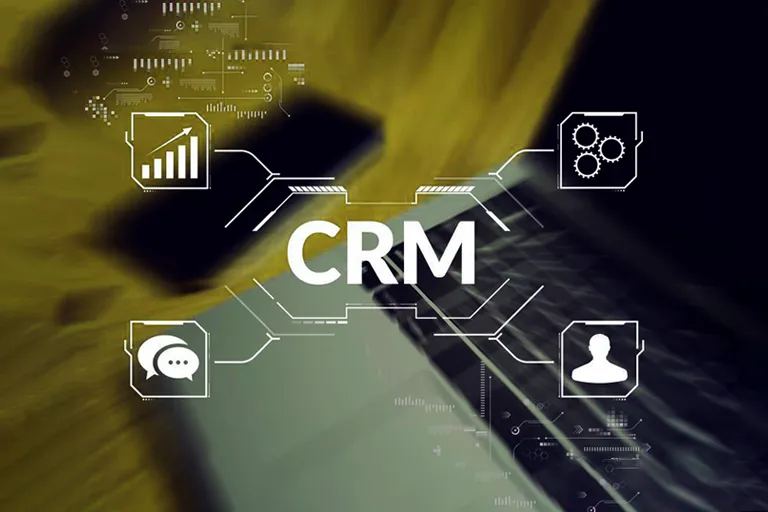Companies and organizations that are looking to recruit and hire a marketing manager are interested in defining the duties of their marketing manager as clearly as possible. In this article, I will discuss the 18 main duties of a marketing manager and share them with you.
Determining the duties of the marketing manager is necessary for formulating the job description and determining the conditions of the job , and in the continuation of the cooperation path, it determines a framework so that the marketing manager can be told how strong or weak he has performed compared to the expectations of him.
On the other hand, those who work as marketing managers can see how wide their potential field of activity is by reviewing these lists. Perhaps, inspired by this type of list, they can offer suggestions to expand their scope of responsibility and even if there is no such space in their current job, based on this job description, they can try to learn and develop themselves so that in the future they can find better positions in organizations and Acquire other businesses.
Duties of marketing manager?
I must emphasize that there is no list of marketing manager duties that everyone agrees on and says that this list is comprehensive.
Some organizations and businesses see marketing as very limited and to the extent of branding , advertising , market research and new product development and entrust activities such as public relations, member recruitment and even digital marketing to units outside the marketing department.
On the other hand, there are businesses that even consider sales as a subcategory of marketing, and the marketing manager actually has the role of marketing and sales manager.
In the following, we discuss the 18 duties of the marketing manager and examine them together:
1. Knowing and recognizing the characteristics of the market
Recognizing and recognizing the characteristics of the market is one of the tasks without which marketing management is meaningless and marketing activities will not be effective. Let’s review some of the most important qualities that a marketing manager should look for:
- What are the demographic characteristics of our customers and our industry customers in general?
- To what extent is this market concentrated or fragmented, and of course, how many percent of the total market do the three or five main brands have, and to what extent does monopoly make sense in this market ?
- What are the main trends governing the market and what are the predictions about the future of the market?
- Who are our main competitors in the market and how many main strategic groups are there in this industry?
- What paths have our competitors chosen for their future development?
- What is the cost of producing goods or providing services in this market and what share of the total price does it take?
2. Developing a marketing strategy
Depending on the scale of an organization and business and how its managers think, the relationship between the marketing manager and the marketing strategy will be different.
Sometimes the main components of the marketing strategy are dictated to the marketing manager. That means, practically, those like the CEO, board members, or the production manager determine what the strategy is and simply put the implementation of the strategy or maybe some small decisions in charge of the marketing manager.
There are other collections that do the exact opposite. That is, they leave the hands of the marketing manager free to define and formulate the marketing strategy, and then other parts of the organization adapt to this strategy.
As you can guess, there is a third option and that is to form the marketing strategy in interaction with other parts of the organization. That is, during numerous conversations and structured meetings, the marketing strategy should be formulated in a back and forth manner. In this case, in addition to senior managers, it is likely that managers of the same level in other departments will also express their opinions and, as a rule, they will be more prepared to help implement the marketing strategy.
However, when we talk about marketing strategy, we should consider the following:
- The general components of the marketing strategy should be proposed and approved
- The details of the marketing strategy should be developed
- The implementation of the marketing strategy is definitely the responsibility of the marketing manager
- Evaluating the success of implementing strategic control is also the responsibility of the marketing manager
Things like translating the organization’s values to their corresponding values in the marketing unit, SWOT analysis for different products, deciding whether to insource or outsource any of the marketing unit’s activities, and drawing an accurate picture of customers or personas are also among the tasks that should be done in the form of strategic planning. Marketing is done.
3. Elaboration of marketing policies
One of the most important tasks of the marketing manager is to determine the policies of marketing activities according to the macro strategies of the organization as well as the marketing strategy and compile them in a clear form in the form of a document. .
For example, it should be specified that:
• What do’s and don’ts does the company observe in its promotion programs?
• What are the do’s and don’ts for the company to appear in public, specialized, environmental and social media?
• What frameworks should the marketing unit follow in producing content ?
4. Management of marketing activities
Naturally, the marketing manager, like any other manager, is responsible for managing the day-to-day marketing activities. Managing each of the daily activities includes three main tasks:
Determine the activity
Are the activities within the scope of the marketing unit? If so, what is its definition? Exactly what sub-activities does it include? Who is responsible? Who should report to? These works are collectively called “activities standardization”.
Activity guidance
Care must be taken to ensure that the person responsible for that activity does the job correctly.
Activity coordination
If this activity is done with the cooperation of several people or several departments, make sure that the necessary coordination is done and that there is a platform and processes required for these coordination.
Sometimes, the senior managers of the companies extract the list of activities and communicate those tasks to the marketing manager when hiring the marketing manager, which is usually the case in large companies.
Sometimes, the marketing manager is asked to prepare a list of activities and present it to the company managers in the first weeks of his activity. This list will define the framework for the marketing manager’s day-to-day activities after getting approval from the managers.
5. Search for opportunities
The marketing manager must determine what opportunities exist in the market or what opportunities are emerging that the company has not yet seen and taken seriously.
These opportunities can appear in the form of new markets, new products or changes in current products. Orphaned customers are another example of opportunity. Customers whose previous supplier company is no longer present in the market or has stopped supplying that product and supporting it.
6. Marketing investigation
In order to learn more about the needs and demands of the customers and their opinion about the company and its current activities and products, the marketing department should go for a targeted and methodical study.
7. Digital marketing
Digital marketing is one of the activities that usually falls under the marketing department. Of course, some senior managers, who have less knowledge of digital marketing , may remove digital marketing from the coverage of the marketing unit and turn it into an independent unit.
It is not even unlikely that they monitor digital activities directly and do not comment on billboards and TV teasers, but they check Instagram posts one by one and they themselves sit at the feet of posts and comments and do not get up.
8. New product development
If you measure marketing books, new product development is a subset of marketing activity . That is, it is the marketing manager who is responsible for the development of new products for the business, according to his knowledge of the market and customer needs.
But today, I see many companies that manage the product development unit separately with an independent manager. Sometimes, product development is a subset of the research and development unit , and it is again outside the realm of marketing.
However, the marketing department always plays an important role in the development of new products. If product development is a subset of the marketing unit, one of the daily tasks of the marketing manager is to follow up on this activity. But if this is not the case, the marketing manager must maintain close contact with the unit responsible for product development. Conducting market research and summarizing customer opinions, as well as cooperation in determining technical specifications and pricing, are among the tasks that require the cooperation of the marketing unit.
9. Preparation and adjustment of product content
One of the important tasks of the marketing department is to prepare and adjust the “product introduction content”. Product introduction is done in many different ways and it is very important for the marketing manager to know the different product introduction spaces and guide his team to set the best product introduction contents. Consider the following examples:
- What should be the text to introduce each product on the site?
- What photos should be used to introduce the product?
- How to design and produce the catalog of each product?
- For which products should we make a video clip? What is the content of that clip?
- Do we need to produce a product manual? Is the digital version exactly the same as the physical version?
- How to make a comparison table so that the customer can choose the one that is closest to his needs among our similar products?
10. Sales support
Another function of the marketing manager is sales support. He should support the sales unit himself and create an environment and provide a platform for the marketing team to support the sales department.
Sales support happens in different ways, one of them is the preparation and adjustment of catalogs and brochures. Among other things that the marketing department can do in support of sales, the following can be mentioned:
- Training new salespeople and updating current salespeople’s knowledge
- Talking with sales experts and documenting their information and experiences in sales
- Use sales data and statistics to develop more realistic marketing plans
11. Pricing
One of the important tasks of the marketing unit is product pricing. Pricing is done at different times with different goals and in different ways.
For example, the following can be mentioned:
- Setting a price for a new product that we haven’t launched before
- Price changes and adjustments due to inflation and increased production costs
- Price reduction due to competitive pressures or increase in production scale and cost reduction
- Changing the price at certain times as a promotion with the aim of increasing sales, more active presence in an exhibition, increasing brand awareness, etc.
According to these explanations, the marketing manager should know pricing strategies well and master them.
12. Management of advertising and promotion activities
You must remember that one of the famous four P’s in the marketing mix is Promotion, which, along with Price, Place, and Product, all promotion activities should be considered in the domain of the Marketing Department and their responsibility should be placed on the Marketing Manager. At least involved and partnered the marketing manager in their policy making, implementation and evaluation.
The following are some examples of these activities:
- Any form of advertising and, accordingly, the implementation of advertising campaigns
- Temporary changes in prices and applying discounts on products
- Deciding on the bonding strategy
- Exhibition presence
13. Defining and determining access channels and platforms
Regardless of what product you offer, it must be provided in a distributed form or a platform to access it:
- Is your product in such a form that you need to deliver it to different stores and shops and physically distribute it?
- Do you have a physical store or stores for product supply?
- Do you sell your product online?
- Do you have telephone sales?
- Is your account in social networks also responsible for sales, or does it only introduce customers to products and finally direct them to the site or stores?
A significant part of these questions must be answered by the marketing manager. Also, keep in mind that the answers to these questions will change over time. Therefore, the marketing unit must decide what policies should be considered for distribution channels and access platforms at any point in time by measuring the market and observing competitors.
Of course, we know that in many businesses, ultimately, the executive work related to distribution and access is the responsibility of units such as sales and logistics. But again, the marketing unit plays an important role in the field of distribution and sales policy, and the marketing manager has the duty to have a good knowledge of distribution tools and access platforms.
14. Customer relationship management
All the work related to customer relationship management is a subset of the marketing unit , and the marketing manager is required to ensure the correct and effective implementation of those activities.
Forming a database of customers, constantly measuring customer satisfaction and trying to increase customer loyalty and reduce the drop rate are among the tasks that should be paid attention to in this field.
15. Reviewing and evaluating customer journey maps
Since the subject of the customer journey map entered the public literature after the popularization of digital marketing topics, some mistakenly think that the customer journey map is one of the small tools of digital marketing . While the proliferation of digital tools has only made it easier and more accurate to assess the customer journey map .
Every business in any space can have its customers’ journey map and know through which channels customers reach its products and how they turn from an unfamiliar person into an informed audience, a buyer, a loyal customer or a dissatisfied customer. The business must know the capacity of each of the channels and their power in attracting customers and examine the changes in the customer journey over time.
If we want to assign this responsibility to a person or department, one of the best options is the marketing department, and naturally, the final responsibility of the work will be the responsibility of the marketing manager.
16. Management of bad and unwanted events
Suppose the product of a food company has poisoned a number of customers. Or an online service company has been unavailable for several hours due to a problem in the data center.
Who is responsible for talking to unhappy customers and ensuring their satisfaction? If the company is large and has a large audience, who should speak to the media? Which department should decide about the message that is published on the company website and social media accounts?
In large companies, this work is usually the responsibility of the public relations unit. In such cases, the marketing manager can be asked to cooperate with the public relations unit, and naturally, there is no more expectation than cooperation from the marketing manager.
But in smaller companies and businesses, such duties are entirely the responsibility of the marketing manager. Because creating and maintaining a public relations unit is not feasible or economical for small groups. Therefore, it is reasonable to mention this point in the description of the duties of the marketing manager and prepare him for such situations.
17. Financial and economic management of marketing
The marketing manager is obliged to estimate and record the financial aspects and economic consequences of marketing activities as much as possible. Consider the following examples:
- Estimating and compiling the quarterly and annual budget of the marketing unit
- Estimating the cost of running an advertising campaign
- Collecting the tariff of different media and constantly updating the tariff table
- Complete registration of unit costs and presentation of cost reports to senior managers or CEO at specific times
- Calculating or estimating the ROI (return on investment rate) resulting from various activities of the marketing unit in advertising, campaigns, loyalty programs, customer clubs, etc.
This part is one of the things that should be clarified between the company and the marketing manager from the beginning. Because over time there are many disagreements about it. Sometimes marketing managers declare that financial calculations and presentation of economic reports are the expertise of the accounting unit, and sometimes they may say that analyzing the economic achievements of some activities such as branding is basically impossible.
All these matters should be discussed from the beginning and both the manager and the company should know what they can expect from each other and what limitations they must accept.
18. Human resources management
In small companies, it is usually the responsibility of the marketing manager to recruit, train, evaluate, calculate salaries and benefits, and even cancel the contract and fire the members of the marketing team . But this is a point that the marketing manager may not know from the beginning or is not willing to do it.
Therefore, if a company considers such things among the duties of the marketing manager, it is better to include it in the job description and inform the marketing manager.
On the other hand, someone who wants to play the role of marketing manager in the future, it is better to spend time getting to know more about human resources management . Because strength or weakness in this area can easily determine the success or failure of a marketing manager.
Even in large companies where there is an independent human resources unit, the marketing manager is usually consulted and involved in the processes. Therefore, it can be said that marketing managers in all organizations and businesses, regardless of the dimensions and size of that group, should take time to learn more and better about human resource management and strengthen their knowledge and skills in this field.
In the end, I would be happy if you have worked as a marketing manager or have been in contact with marketing managers in your group, share your tips, tasks and experiences with us and tell us if you have had the experience of not clarifying some of the Have these tasks led to disagreements and the formation of conflict?












